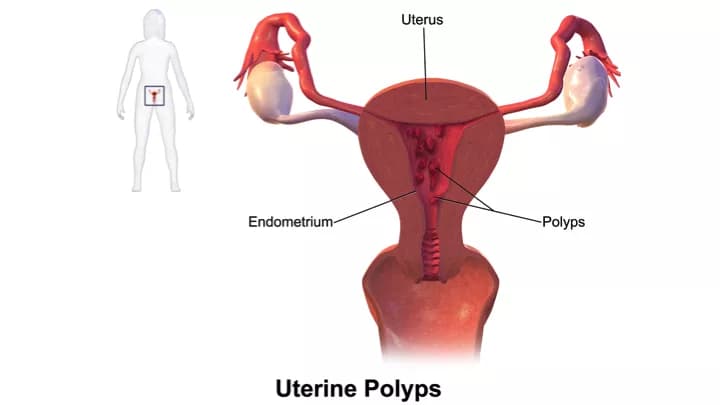What are the other Names for this Condition? (Also known as/Synonyms)
- Prolapsed Uterus
What is Uterine Prolapse? (Definition/Background Information)
- Uterine Prolapse is a condition in which the uterus slips out of its normal position, often putting pressure against the vaginal walls
- It occurs as a result of weakened pelvic floor muscles and tissues that are unable to support the uterus
Who gets Uterine Prolapse? (Age and Sex Distribution)
- While uterine prolapse can occur in women of all ages, it is most common in postmenopausal women who have had vaginal deliveries during the birthing process.
What are the Risk Factors for Uterine Prolapse? (Predisposing Factors)
Common risk factors of uterine prolapse include:
- Vaginal birth delivery
- Heavy lifting
- Chronic cough
- Pelvic surgery
- Bowel difficulties
- Family history of uterine prolapse
- Obesity
- COPD
It is important to note that having a risk factor does not mean that one will get the condition. A risk factor increases ones chances of getting a condition compared to an individual without the risk factors. Some risk factors are more important than others.
Also, not having a risk factor does not mean that an individual will not get the condition. It is always important to discuss the effect of risk factors with your healthcare provider.
What are the Causes of Uterine Prolapse? (Etiology)
- The weakening of pelvic floor muscles in women, causes Uterine Prolapse. When this occurs, the pelvic muscles are unable to suspend the uterus in the correct position
- This allows the uterus to slip and fall onto the vagina, placing an abnormal pressure on it, thus creating a bulge
- Pelvic floor muscle weakening can be caused by a variety of factors, including:
- Difficult labor and delivery
- Advancing age
- Low estrogen levels
- Pelvic organ tumors
What are the Signs and Symptoms of Uterine Prolapse?
Common signs and symptoms of uterine prolapse include:
- Heaviness in pelvis
- Bulging near vagina
- Urinary problems
- Bowel difficulties
- Lower back pain
- Difficulties during sexual intercourse
- Vaginal bleeding
- Bladder infections
- Increased vaginal discharge
How is Uterine Prolapse Diagnosed?
- To diagnose uterine prolapse, doctors will perform a pelvic examination. During this exam, the doctor will insert a speculum into the body to better examine the vagina and uterus.
- The doctor may also feel for the presence of bulges in the pelvic area to determine if uterine prolapse has occurred.
Many clinical conditions may have similar signs and symptoms. Your healthcare provider may perform additional tests to rule out other clinical conditions to arrive at a definitive diagnosis.
What are the possible Complications of Uterine Prolapse?
- Complications may arise from uterine prolapse. These can include:
- Ulcers
- Prolapse of other pelvic organs
- Loss of bowel, bladder, and sexual function
How is Uterine Prolapse Treated?
- In many cases, mild uterine prolapse does not require treatment. If symptoms are mild or are not bothersome, most women do not need to receive treatment. However, they should perform certain pelvic floor muscle exercises, under advise from the physician
- In more severe cases, treatment is necessary. These options include:
- Vaginal pessary
- Hysterectomy
- Laparoscopic surgery
- Pelvic floor muscle exercises
- Estrogen replacement therapy
How can Uterine Prolapse be Prevented?
- While it is largely impossible to prevent uterine prolapse, efforts can be made to lower one’s risk. These include:
- Maintain a healthy weight
- Avoid smoking
- Correct constipation
- Avoid heavy lifting
- Avoid jumping
- Do pelvic muscle strengthening exercises
- Regular exercise
- Having a healthy, balanced diet
What is the Prognosis of Uterine Prolapse? (Outcomes/Resolutions)
- With proper treatment, most women with uterine prolapse are able to return to their normal lives.
- In some cases, relapse is possible and may require further treatment to improve conditions.
Additional and Relevant Useful Information for Uterine Prolapse:
The following DoveMed website link is a useful resource for additional information:
Related Articles
Test Your Knowledge
Asked by users
Related Centers
Related Specialties
Related Physicians
Related Procedures
Related Resources
Join DoveHubs
and connect with fellow professionals


0 Comments
Please log in to post a comment.